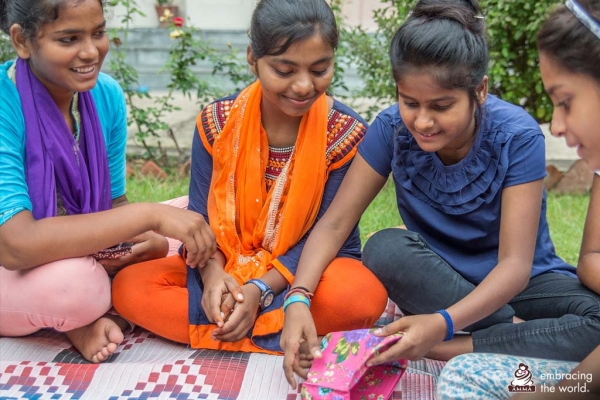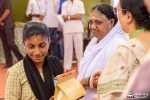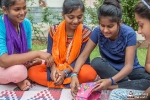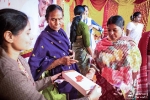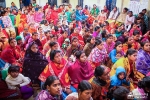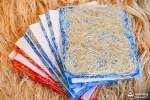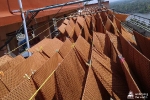“It’s not enough to know about waste management. We also need to know how to stop producing waste,” says Amma. “For example, the sanitary pads readily available in the market are not biodegradable and add to the waste in the country. Amma’s project has created Saukhyam Pads, which are made from cotton and banana fibre. They can be reused and are also biodegradable.”
Around the world, people honor Menstrual Hygiene Day and the global movement to end the poor health and shame that girls and women face as a result of their periods. It was with this same goal in mind that the expansion of Saukhyam production in villages across India lead to a deeper level of women’s empowerment.
Menstruation is becoming a topic for open discussion in an arena where it has been haunted by elements of taboo and shame. Due to these negative influences, poor menstrual hygiene means limited access to safe products and lack of sanitation infrastructure. This, in turn, undermines the health, access to educational opportunities, and overall status of millions of women and girls around the world.
To take on this aspect of menstrual awareness, Amma also began free distribution of Saukhyam Pads in Amrita SeRVe villages. Since January of this year, they have been given to women and girls in West Bengal, Kerala, Telangana, Bihar and Tamil Nadu.
The campaign will continue until all Amrita SeRVe villages are reached. As part of the work, AYUDH, our youth movement, is conducting awareness sessions in schools and colleges to educate students about the benefits of using reusable pads.
“Once young girls learn about these facts, and make a switch, they have made a good habit for a lifetime,” says Krishna Sreesuthan, who works with the Saukhyam Team. “We usually give pads in sets of 5 to school- and college-going girls. We look forward to having 14,000 girls use the 70,000 pads that we will make over the remainder of this year.”
It is estimated that one disposable pad has the equivalent of four plastic bags in it. Over her menstruating lifetime, an average woman uses and discards 10,000-15,000 pads or the equivalent of 40,000-60,000 plastic bags. This trash will continue to pollute the planet for hundreds of years.
In Amritapuri, Saukhyam has begun pre-washing, ironing and cutting cotton cloth that will be distributed to village SHGs in order to produce the pads. Hridayesh from France volunteered to help with the process.
“It’s a rare privilege I have received,” he says. “This 5000-meter long cloth will be used to protect women and Mother Nature from being defiled by unsuitable man-made synthetics. It makes me happy to contribute a little bit for this meaningful endeavor.”
The worldwide goal of Menstrual Hygiene Day is to break the silence about menstruation, raise awareness of proper care and change the existing negative social norms. This can create a world in which every woman and girl is empowered to manage her menstruation safely, hygienically, and with confidence about who she is. No woman or girl should be limited by something which is natural and normal.
Photo 1: Amma distributing Saukhyam Reusable Pads to students at her 2019 program in Mangaluru, Karnataka.
Photo 2: Mangaluru AYUDH conducts an awareness session highlighting the environmental and health benefits of reusable menstrual pads.
Photo 3: Free distribution of Saukhyam Reusable Pads to 70 women and girls in the village of Kalinagar, West Bengal.
Photo 4: Women and girls in Kalinagar, West Bengal gather for an information session about menstrual health and hygiene.
Photo 5: Saukhyam Reusable Pads are made with cotton and banana fiber. The banana fiber is highly absorbent, even more so than cotton.
Photo 6: Washed cotton cloth drying on a line Amritapuri.



